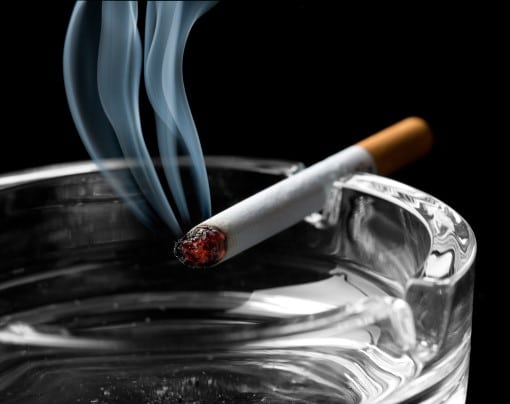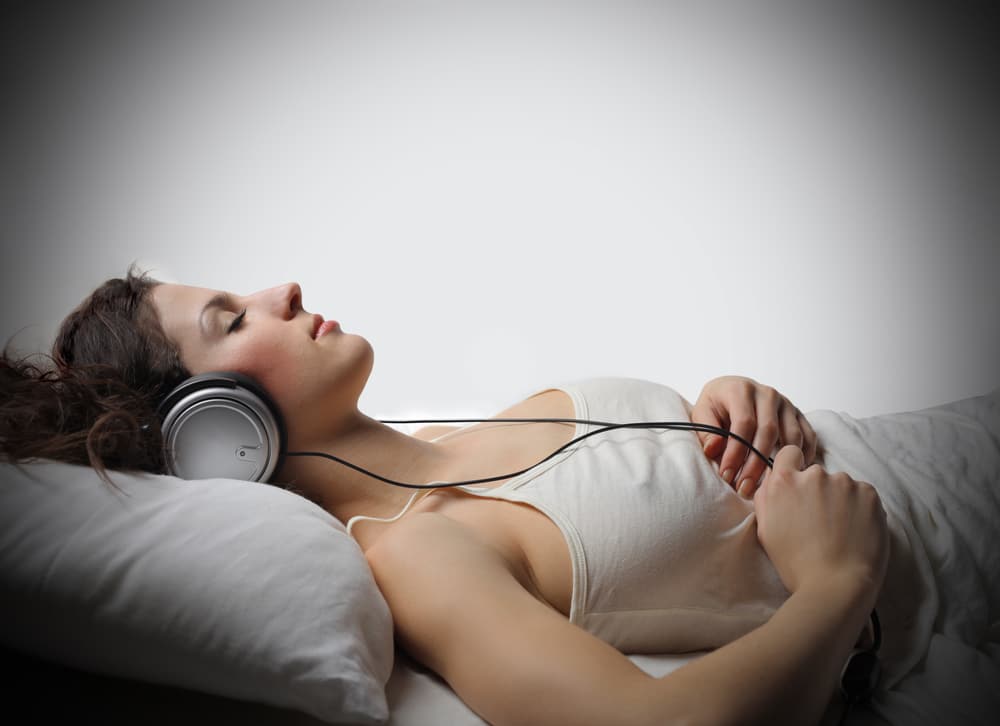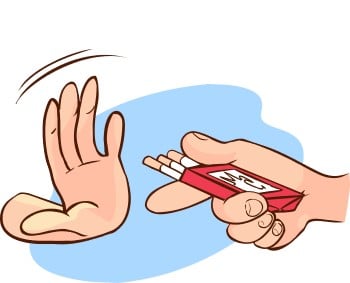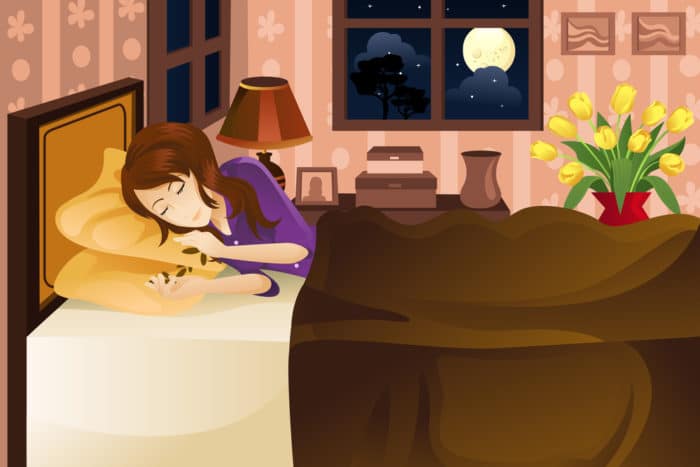
5 things to try if you’re waking up in the middle of the night to smoke
By Jason Wooden, PhD | November 22, 2020
While night time wake ups is a common issue, smokers are twice as likely to have sleep problems. Nicotine is highly addictive and as it wears off the body craves more and wakes you up.
Smoking also makes it harder fall asleep at bedtime, may cause snoring, and increases your risk for sleep apnea. For better nights, your options include sleep hygiene, physical activity, nicotine substitutes, and weaning yourself from nicotine.
In this article, we’ll talk about:
Waking up in the middle of the night to smoke is a common complaint
Waking up in the middle of the night to smoke can be a pain in the butt, no pun intended. It’s a common question posted online in smoking forums.
You see smokers complaining about waking up around 2:30 AM and finding it hard to get back to sleep without smoking a cigarette or two.
For some, they rarely make it through the night without getting up a couple times for a smoke.
For others, they wake up to go to the bathroom and find it hard to fall asleep without a smoke.
If this describes you, you’re not alone.
First off, night time wake ups is one of the most common sleep issues affecting 1 in 5 adults on a weekly basis. Unfortunately, smokers are twice as likely to have sleep problems.
Secondly, there are 34 million adults in the US alone who smoke cigarettes. It’s likely that on any given night millions of them are struggling with night time wake ups.

I wouldn’t be surprised if its the same for tobacco chewers and vapers.
What’s worse is that many people aren’t aware of the different ways nicotine can ruin their sleep.
It’s not just night time wake ups.
Let’s take a look at what’s happening, a few other nicotine issues you should be aware of, and some practical things you can do to get things back on track.
Why you’re waking up for a smoke
It turns out that waking up at night is a known physical symptom of nicotine withdrawal.
Nicotine is highly addictive and as the effects from your last hit wear off your body starts to crave more and wakes you up.
This is one of the reasons that cigarette smokers are four times as likely as nonsmokers wake up in the morning feeling unrested. They spend less time in deep sleep and more time in light sleep.

And deep sleep is what your body really needs to restore and refresh itself. It’s not just how long you sleep, but also how well.
The symptoms of nicotine withdrawal typically appear within 2 to 3 hours of your last smoke. People who smoke the longest or the most cigarettes each day are more likely to deal with withdrawal symptoms.
Unfortunately, if you’re smoker, nicotine withdrawal isn’t the only thing that your sleep may be up against. You may wake up because of other insomnia issues, depression, and stress.
Waking up at night isn’t the only smoking issue killing your sleep
Okay, we’ve talked about why you’re waking up during the night for a smoke.
You should know that smoking does other things to your sleep. Some are obvious and some you’re probably not aware of:
Falling asleep
Nicotine, like caffeine, can make things harder at bedtime. While a hit of nicotine may initially make you feel more relaxed, it will also raise your heart rate and make it more difficult to fall asleep.
Age – older people generally take longer
Genetics – research suggests that Asian-Americans and African-Americans get rid of it more slowly
Hormones – pregnant or women taking estrogen hormones get rid of it more quickly
Health issues – if you have liver or kidney problems, it’ll take your body longer
Medications – some antibiotics can speed up nicotine removal while overs slow it down
Snoring and sleep apnea
Smoking can increase your risk for snoring and obstructive sleep apnea, a sleep disorder in which your breathing is repeatedly interrupted while you’re sleeping.
It’s a real sleep killer because the breathing interruptions pull you out of deep sleep into a lighter sleep. The result is that you wake up feeling as if you didn’t sleep even if you slept for 8 hours!
If left untreated, it can put you at risk for high blood pressure, heart disease, stroke, diabetes, and depression.
If you smoke, you’re 3 times as likely to develop obstructive sleep apnea.
Dealing with those night-time nicotine wake ups
Okay, enough of the bad news…
Let’s get to the good news, the practical things you can do to avoid waking up in the middle of the night for a smoke.
We’ll also look at what you can do after a nicotine wake up to get back to sleep more quickly.

1) Avoid caffeine (and alcohol)
What nicotine is bad enough so don’t make things any tougher than they have to be. Like nicotine, caffeine in the evening will make it harder to fall asleep. Depending on how caffeine sensitive you are, you may have to avoid it starting in the afternoon.
Similar to nicotine, alcohol may help you relax before bed time but during the night it will come back to bite you. That’s because it makes your sleep more shallow instead the deep sleep you need.
(And yes, there are other reasons besides sleep to avoid alcohol.)

2) Stay active
Physical activity can improve your overall mood and help lessen your nicotine cravings. It’s also known to promote deep sleep.
Recent research suggest that it may also help fight some of the negative effects of smoking such as inflammation and muscle loss.
So, try doing something everyday even if its only a walk around the neighborhood.

3) Distract yourself with a sleep friendly activity
Keep in mind nicotine cravings last about 15 – 20 minutes. Experts suggest that you find a way to distract yourself when a craving comes on.
If you’re trying to cut back or looking for something else to do to help you get back to sleep, there are plenty of activities worth a try.
There’s quiet music, light reading, stretching, or many other mindless activities you do. Just be sure to avoid anything that can get you wired up.

4) Herbal remedies for relaxation
Nicotine isn’t the only way to relieve stress before going to bed. We’ve already talked about relaxing activities such as music, and stretching. Exercise is another great way to fight stress.
Herbal remedies worth a try include:
Valerian
Chamomile
Lavender Essential Oils
CBD

5) Wean yourself off of nicotine
Yes, this one is pretty obvious, but I had to put it on the list. I get this may be easier said than done depending on your situation.
There plenty of good reasons beside sleep to give this try and there’s a right way to do it.
A few places for practical tips:
How to Quit Smoking (Healthguide.org)
How to Quit Smoking (CDC)
How to Quit Vaping: A Practical Guide (EverydayHealth.com)
Other things you should do to improve your sleep
While waking up in the middle of the night to smoke may be on your mind, it’s not the only thing to think about. There are plenty of other things that could be making your sleep situation worse.

Practice good sleep hygiene:
What nicotine does to your sleep is hard enough. Give yourself the best chance for a restful night by following the rules of sleep hygiene.
Your everyday habits can set the stage for deep restful sleep. Poor sleep hygiene will sabotage the other things you do to improve your sleep.
So, for better sleep hygiene, you should:
- keep consistent wake up & sleep time
- exercise during the day
- get natural daylight
- avoid large meals, alcohol, or stimulants such as
- caffeine before bedtime
- maintain a regular bedtime routine
- avoid using TVs, laptops, or other electronics before sleep
- keep your bedroom dark, cool, quiet, & relaxing

Counseling:
Counseling can help you identify triggers and other psychological issues surrounding your smoking. It can also help you figure out other things affecting your sleep.
Learn more:
Counseling for smokers
Sleep counseling

Get a check up:
Smoking may not be the only thing ruining your sleep. Anxiety and depression can take a toll on sleep.
Many other health issues are linked to poor sleep, including chronic pain, heart burn, and asthma. You may also be living with an undiagnosed sleep disorder such as obstructive sleep apnea.
It’s well worth it to see a doctor, especially if you’re sleep poorly on an ongoing basis.
What to remember about waking up in the middle of the night to smoke:
- It’s a common problem
- Smokers wake up due to nicotine withdrawal
- There are practical things you can do to avoid nicotine wake ups and improve your sleep
You may also be interested in:
Sources:
1. Impact of middle-of-the-night awakenings on health status, activity impairment, and costs. Nat Sci Sleep. 2014 Jul 23;6:101-11.
2. Insomnia in adults: the impact of earlier cigarette smoking from adolescence to adulthood. J Addict Med. Jan-Feb 2015;9(1):40-5.
3. “1 in 3 adults don’t get enough sleep”, CDC website
4. “Nicotine withdrawal symptoms and how to cope”, Medical News Today
5. “Smoking and Sleep”, American Sleep Association website
6. “Smoking Linked To Sleep Disturbances”, ScienceDaily website
7. “Nicotine and tobacco”, MedlinePlus
8. Effect of night smoking, sleep disturbance, and their co-occurrence on smoking outcomes. Psychol Addict Behav. 2011 Jun;25(2):312-9.
9. Nicotine chemistry, metabolism, kinetics and biomarkers. Handb Exp Pharmacol. 2009;(192):29-60.
10. Sleep quality in cigarette smokers and nonsmokers: findings from the general population in central China. BMC Public Health. 2019 Jun 24;19(1):808.
11. “It might be time to butt out – smoking impacts sleep in a myriad of ways, from a high incidence of sleep apnea to insomnia”, 2018, restonic.com
12. “Exercise may help protect smokers from inflammation, muscle damage”, 2017, ScienceDaily website
13. “Tips for coping”, Medical News Today
Connect with us:
About Us
Better Sleep Simplified® was founded as a place for you to get clear and well-researched information.
Our goal is to make sure you know about your options so that you take action sooner rather than later.
Check us out on YouTube:
Watch and Learn
Helpful sleep tips, interesting sleep facts and statistics you want to know about
Affiliate Disclosure
This site is a participant in the Amazon Services LLC Associates Program and other affiliate advertising programs designed to provide a means for sites to earn advertising fees by advertising and linking to them.
Important: BetterSleepSimplified.com is for informational purposes only and is not intended or implied to be a substitute for professional medical advice, diagnosis, or treatment. Always consult a physician for sleep and health concerns. See additional information.
